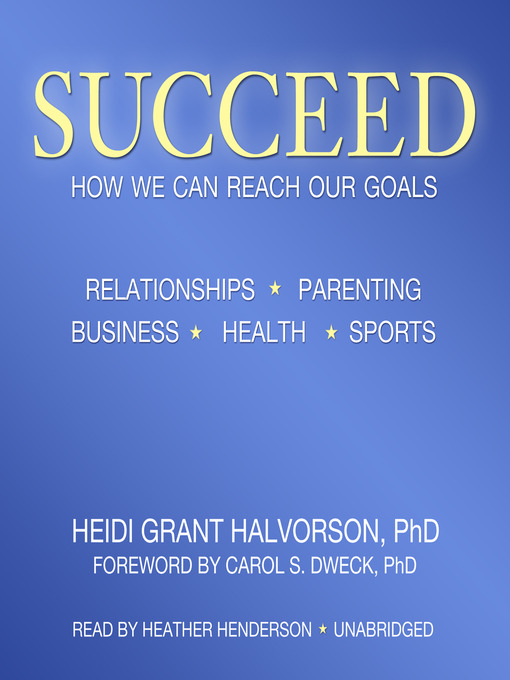Whether it's wanting to impress our bosses, find a loving relationship, straighten out our finances, or take better care of ourselves, we all feel that there is at least one part of our lives that is in real need of improvement. We want to do better, but somehow we fall short and end up feeling like we don't have what it takes to reach our goals. And we could not be more wrong.
Most of us have no idea why we fail to reach our goals. Now eminent social psychologist Heidi Grant Halvorson shows us how we can finally win by revealing how goals really work—and by showing us how to avoid what typically goes wrong.
Dr. Grant Halvorson offers insights—many surprising—that listeners can use immediately, including how to:
– Set a goal so that you will persist even in the face of adversity; – Build willpower, which can be strengthened like a muscle; – Avoid the kind of positive thinking that makes people fail.
The strategies outlined in this book will not only help everyone reach their own goals but will also prove invaluable to parents, teachers, coaches, and employers. Dr. Grant Halvorson shows listeners a new approach to problem solving that will change the way they approach their entire lives.

